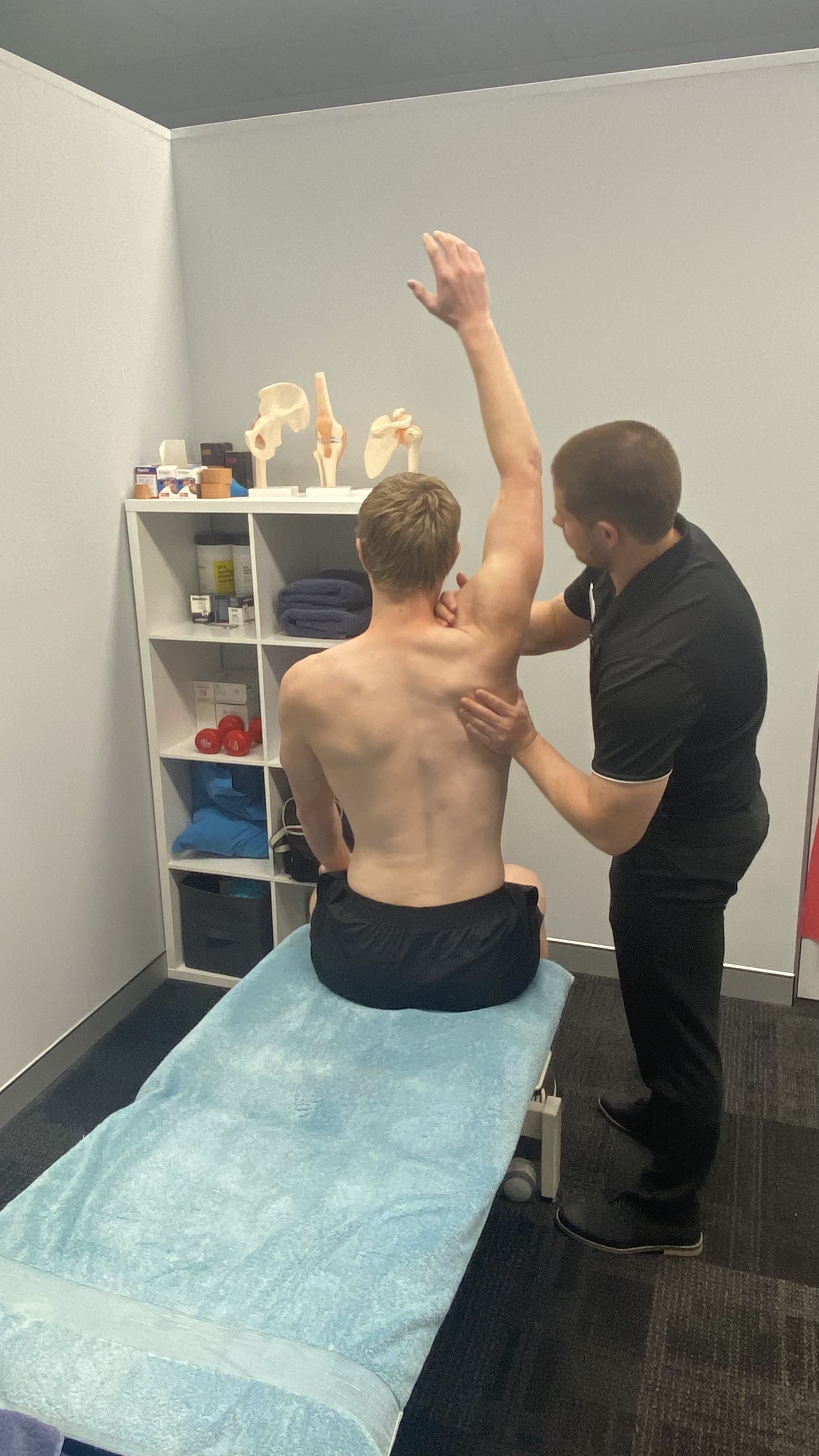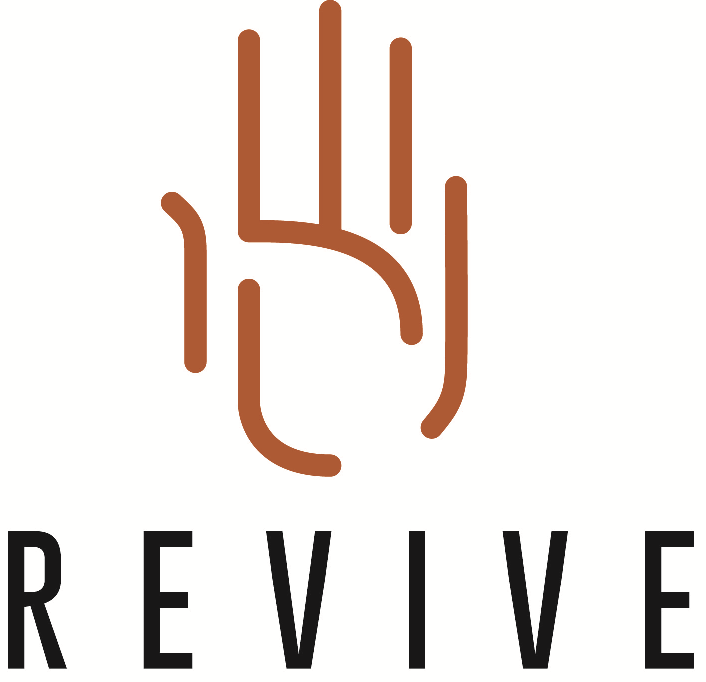Shoulder Pain Physiotherapy in Perth
Expert Treatment & Lasting Relief
Relieve shoulder discomfort, regain strength, and return to your daily activities with personalised physio treatment plan at Revive Physiotherapy.

Painful shoulder conditions that limit movement are very common, and are caused by injuries affecting the shoulder joint, muscles, tendons, ligaments and cartilage. As the shoulder has a high degree of flexibility, it is therefore less stable and more prone to injuries than other joints of the body.
Since the nerves that supply the shoulder and arm originate from the neck and upper spine, conditions such as Vertebral Dysfunction commonly contribute to pain in the shoulder. A physiotherapist will be able to diagnose your shoulder pain and put you on the right treatment path. Contact the team at Revive Physiotherapy in Perth for an initial consultation:
Understanding Shoulder Pain
The shoulder is a remarkable joint that allows for a wide range of motion, enabling us to move our arms in various directions. However, this flexibility also makes it prone to injury and pain.
The shoulder joint is a complex structure made up of bones, muscles, tendons, and ligaments that work together to provide movement and stability. When any of these components are injured or inflamed, it can lead to shoulder pain, stiffness, and limited mobility.
Common symptoms of shoulder pain include pain or stiffness in the shoulder, arm, or upper back, difficulty moving the arm or performing daily activities, and weakness or numbness in the arm or hand.
Physiotherapists can assist with the following common shoulder conditions:
- Chronic Shoulder Pain and Stiffness,
- Shoulder Muscle Spasm and Tension,
- Rotator Cuff Disorders such as tears and strains,
- Frozen Shoulder,
- Arthritis of the Shoulder, and more.
Common Causes of Shoulder Pain
Shoulder pain can be caused by a variety of conditions that affect the muscles, tendons, ligaments, and joints. Some common causes include:
- Rotator cuff muscle injuries (rotator cuff tears or tendinopathy) due to damage to the muscles and rotator cuff tendons surrounding the shoulder joint
- Frozen shoulder (adhesive capsulitis), a condition characterised by inflammation and stiffness in the shoulder joint
- Shoulder impingement syndrome, where the tendons or bursae in the shoulder joint are compressed
- Shoulder bursitis, an inflammation of the fluid-filled sacs (bursae) that cushion the joints
- Arthritis (osteoarthritis, rheumatoid arthritis), wear and tear or autoimmune conditions affecting the joint
- Shoulder dislocation, a partial or complete separation of the shoulder joint
- AC joint injuries, damage to the joint that connects the collarbone to the shoulder blade
- Repetitive strain injuries, overuse or repetitive movements that cause strain on the muscles and joints
- Postural issues related to desk work or device use, poor posture can lead to strain on the muscles and joints
Diagnosis of Shoulder Pain
In order to determine the cause of your shoulder pain, your Physiotherapist will ask you to perform shoulder range of motion and muscle strength tests. Where the pain is felt, both at rest and during movement of the shoulder, provides important clues as to the cause of the shoulder pain.
It may also be necessary to undergo specialised diagnostic tests such as XRay, Ultrasound and/or MRI scans.
Signs & Symptoms to Watch Out For
Shoulder pain can manifest in different ways. Here are some common signs and symptoms to be aware of:
- Persistent pain or stiffness in the shoulder, arm, or upper back
- Limited mobility or stiffness
- Weakness or numbness in the arm or hand
- Difficulty performing daily activities
- Pain that worsens at night
- Difficulty lifting your arm or reaching overhead
- Swelling or tenderness around the shoulder
- Clicking or popping sounds with movement
- Numbness or tingling down the arm
If you’re experiencing any of these symptoms, it’s essential to seek medical attention to determine the underlying cause and develop an effective treatment plan.
Treatment of Shoulder Pain

The initial objective of all shoulder injuries is to relieve pain and inflammation. Whilst many doctors will recommend non-steroidal anti-inflammatory drugs (NSAIDs) to relieve pain and swelling, the benefit obtained by applying ice-packs can be equally, if not more beneficial.
As your shoulder begins to heal, it is vitally important to restore range of movement, and later to improve muscle strength so as to stabilise the shoulder and help prevent further injury and aggravation.
How Physiotherapy Can Help
Your Physiotherapist will be able to assist you with suitable shoulder range of motion exercises and shoulder strengthening and rehabilitation exercises during your recovery.
At Revive Physiotherapy, our physiotherapists use a comprehensive approach to diagnose and treat shoulder pain and address shoulder instability. We start with a thorough assessment and diagnosis, followed by manual therapy like joint mobilisation to improve joint and soft tissue function.
Our tailored exercise programs are designed to restore strength and mobility, and we provide postural and ergonomic advice to prevent future injuries.
We also educate our patients on activity modification and injury prevention strategies, and use modalities like dry needling, taping, or electrotherapy as needed.
Why Choose Revive Physiotherapy?
At Revive Physiotherapy, we’re dedicated to providing exceptional care for shoulder conditions. Our approach is built on a foundation of personalised attention, cutting-edge facilities, and a commitment to long-term health. Our physical therapists understand that every individual’s needs are unique, and we’re passionate about helping you achieve optimal recovery and wellness.
Whether you’re struggling with acute injuries or chronic discomfort, our team will work with you to develop a tailored treatment plan that addresses your unique needs and helps you recover and regain shoulder function without surgical intervention.
Here are just a few reasons why you should choose Revive Physiotherapy:
- Experienced physiotherapists specialising in shoulder conditions
- Personalised one-on-one treatment tailored to your needs
- State-of-the-art facilities across multiple Perth locations
- Holistic approach combining manual physical therapy, exercise, and education
- Empowering patient education for long-term health and injury prevention
Our Shoulder Pain Treatment Process
At Revive Physiotherapy, we follow a structured treatment process to ensure you receive the best possible care for your shoulder pain. Here’s an overview of what you can expect:
- Initial Consultation & Thorough Assessment: We’ll start by assessing your condition, discussing your symptoms, and identifying the underlying causes of your shoulder pain.
- Individualised Treatment Plan Development: Based on your assessment, we’ll develop a personalised treatment plan tailored to your specific needs and goals.
- Hands-On Therapy & Guided Exercises: Our physiotherapists will use a combination of hands-on therapy and guided exercises to help restore movement, strength, and function to your shoulder.
- Ongoing Progress Monitoring & Adjustments: We’ll regularly monitor your progress and adjust your treatment plan as needed to ensure you’re getting the best possible results.
- Education on Self-Management & Prevention Strategies: We’ll empower you with the knowledge and skills you need to manage your shoulder pain and prevent future injuries, so you can get back to living your life to the fullest.
When to Seek Physiotherapy for Shoulder Pain
If you’re experiencing shoulder pain that persists beyond a few days, or if you’ve noticed reduced range of motion or strength, it’s time to see a physio. Additionally, if your shoulder pain interferes with work, sport, or sleep, or if over-the-counter treatments or rest don’t alleviate symptoms, we can help.
Frequently Asked Questions (FAQs)
Shoulder pain can result from various conditions, including rotator cuff injuries, frozen shoulder, bursitis, arthritis, and impingement syndromes.
Physiotherapy can alleviate pain, restore mobility, and strengthen shoulder muscles through tailored exercises, manual therapy, and education on posture and ergonomics.
No, you can book an appointment directly with Revive Physiotherapy without a GP referral.
The number of sessions varies depending on the severity of your condition, but many patients notice improvement within a few sessions.
Yes, post-operative physiotherapy is crucial for regaining strength and mobility after shoulder surgery.
Book Your Appointment Today
Don’t let shoulder pain limit your life. Book your appointment with our experienced team today and start your journey to recovery.
Contact us on (08) 9300 0841 or book online.

